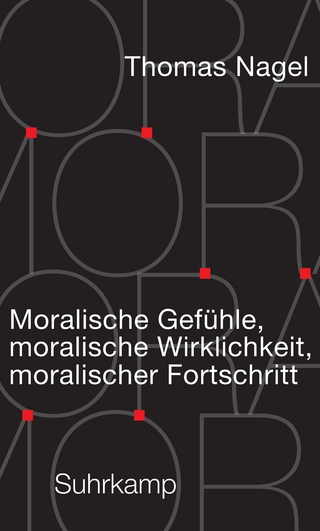
Debts and the Demands of Conscience
Oxford University Press (Verlag)
978-0-19-964296-0 (ISBN)
- Noch nicht erschienen (ca. Juni 2026)
- Versandkostenfrei
- Auch auf Rechnung
- Artikel merken
The 'fresh start' that is afforded individual debtors through the discharge doctrines of American bankruptcy law has, to date, defied justification by a single normative principle or theoretical paradigm. The justificatory accounts that have been advanced either fail to explain core doctrines that have long defined the right of discharge or invite theoretical challenges that suggest that their descriptive virtues are swamped by their normative or conceptual shortcomings.
This book presents a taxonomy of traditional justifications of bankruptcy and subjects them to critical evaluation. It then seeks to offer a new justification of bankruptcy's 'fresh start' doctrines-one that takes its inspiration from a quite different moral tradition than those that have informed past efforts to justify and explain our enduring societal willingness to release people from onerous financial obligations. The book argues that personal debt relief is fully vindicated not by a utilitarian theory, nor by a distributive justice theory, nor by a retributive theory, nor by any other rights- or duties-based theory that is preoccupied with moral claims that particular creditors or debtors might proffer. Rather, the long-standing institution of discharge in bankruptcy is best explained by an aretaic, or virtue-based, theory that concerns itself with the obligations that the rest of us have to be charitable towards those who are unable to repay their debts.
The fresh start that bankruptcy gives to those who have been shackled by overwhelming debt is justified not by its effects on creditors, debtors, or future market actors, but by its satisfaction of the demands of individual charity to which all citizens are subject. Bankruptcy's discharge of the debts of those who have become financially desperate is best thought to be an institution that aggregates others' demands of good character so as to permit citizens for whom debt-forgiveness is a personal virtue to live in a society that fulfils that virtue.
Ralph Brubaker is a Professor of Law at the University of Illinois College of Law, where he teaches courses in bankruptcy, contracts, civil procedure, and conflict of laws. Professor Brubaker clerked for Judge James K. Logan of the United States Court of Appeals for the Tenth Circuit, and he practiced in the bankruptcy and corporate reorganization group with the law firm Squire, Sanders & Dempsey. Professor Brubaker is the Editor-in-Chief and a contributing author for West's Bankruptcy Law Letter, he is co-author of a bankruptcy casebook, and he has written dozens of journal articles and essays. Professor Brubaker is a Fellow of the American College of Bankruptcy, has served as a member of the executive committee of the board of directors of the American Bankruptcy Institute and on the advisory boards for the American Bankruptcy Institute Law Review and the St. John's University LLM in Bankruptcy. Heidi M. Hurd is the David C. Baum Professor of Law and Professor of Philosophy at the University of Illinois and the Co-Director of the Illinois Program in Law and Philosophy. Professor Hurd served as dean of the University of the Illinois College of Law from 2002-2007. Prior to taking up this post, Professor Hurd was first a Professor of Law and Philosophy at the University of Pennsylvania Law School, where she was the Associate Dean and co-founder and Director of the University of Pennsylvania Institute for Law and Philosophy, and then the Herzog Professor of Law at the University of San Diego, where she initiated a similar center for Law and Philosophy. She regularly teaches criminal law, torts, and environmental policy, as well as philosophy courses in moral theory and political philosophy. Professor Hurd is the author of Moral Combat (CUP, 1999), and her numerous articles have appeared in leading American and international journals.
PART I: UTILITARIAN THEORIES OF THE BANKRUPTCY DISCHARGE; PART II: RIGHTS- AND DUTIES-BASED THEORIES OF THE BANKRUPTCY DISCHARGE; PART III: DISTRIBUTIVE JUSTICE (REHABILITATIONIST) THEORIES OF THE BANKRUPTCY DISCHARGE; PART IV: DEFENDING A (NEW) ARETAIC THEORY OF THE BANKRUPTCY DISCHARGE
| Erscheint lt. Verlag | 5.6.2026 |
|---|---|
| Verlagsort | Oxford |
| Sprache | englisch |
| Maße | 156 x 234 mm |
| Themenwelt | Geisteswissenschaften ► Philosophie ► Ethik |
| Recht / Steuern ► Allgemeines / Lexika | |
| Recht / Steuern ► EU / Internationales Recht | |
| Recht / Steuern ► Wirtschaftsrecht ► Bank- und Kapitalmarktrecht | |
| ISBN-10 | 0-19-964296-6 / 0199642966 |
| ISBN-13 | 978-0-19-964296-0 / 9780199642960 |
| Zustand | Neuware |
| Informationen gemäß Produktsicherheitsverordnung (GPSR) | |
| Haben Sie eine Frage zum Produkt? |
aus dem Bereich


